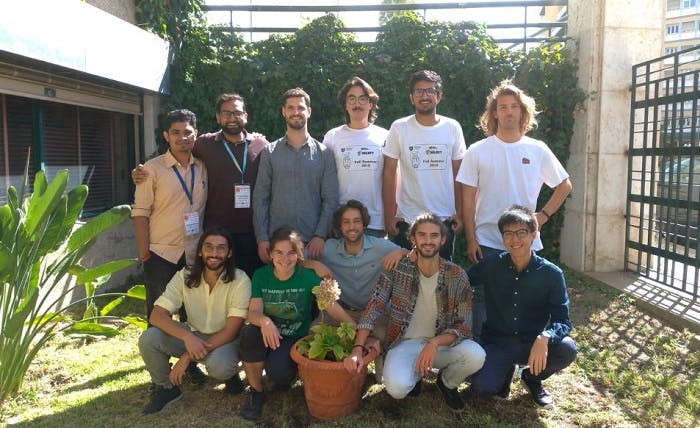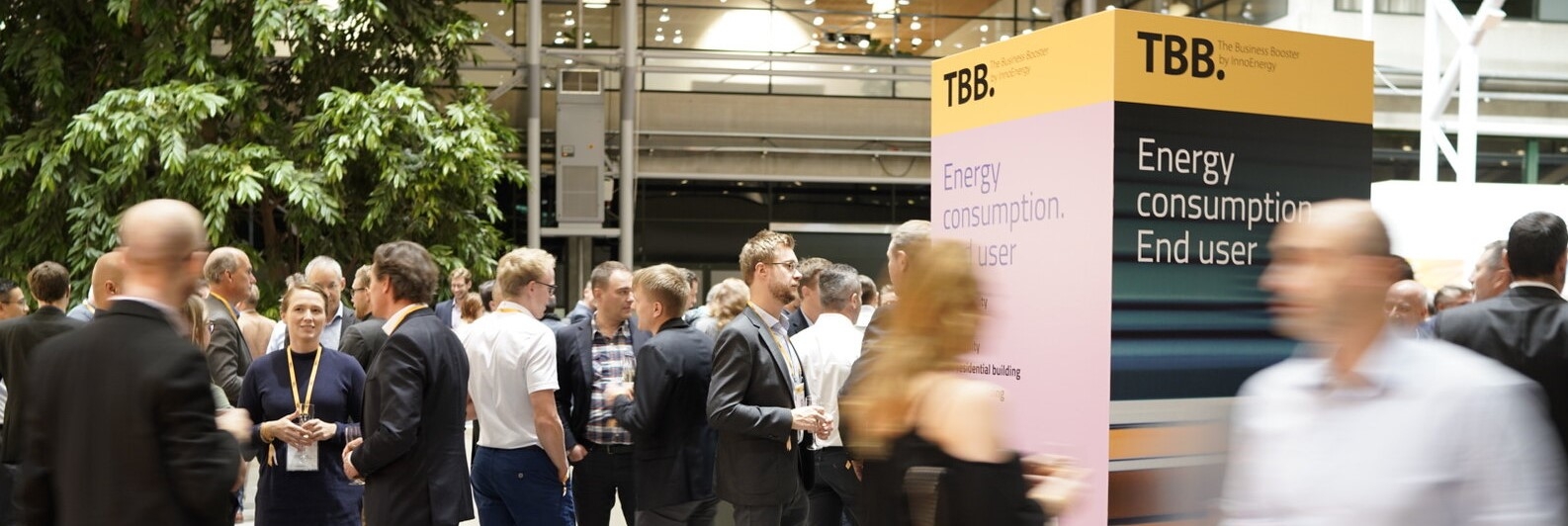Students learn social entrepreneurship while building a self-sustainable ecovillage in Brazil

The term social entrepreneurship may have been coined in the early 1980s, but it is now more relevant than ever. With the goal going beyond mere profit-earning and focusing on improving society – it is precisely the kind of philanthropic spirit needed for a successful energy transition. Eleven EIT InnoEnergy Master’s in Sustainable Energy Systems students are learning how their common goal to develop sustainable communities can help bring people together and bring much-needed change. The team is collaborating with social entrepreneur, Bart Bijen, and his company Eco Caminhos for their Integrated Project of the Year (IPoY) – to help further a self-sustainable ecovillage project in Brazil.
A Project in Self-Sustainability
The existing project of Ecolibrium has the vision to utilise bioconstruction principles, produce its food via permaculture, achieve energy neutrality, treat its waste via circle economy and incorporate communal living – to foster an exchange of knowledge, skills and experiences among people. By hosting events, conferences and workshops open to anybody from tourists to students; education and knowledge transfer are one of the main goals, as well as promoting a sustainable lifestyle through trainings and apprenticeships. Starting in September 2019, the team brought their unique skillsets to the table to help further this vision on the 18,000 sqm area located in the heart of Eco Caminhos’ land, by designing the building using natural ventilation and passive heating/cooling techniques. Their goal would be to develop the ECOL compound (with their IPoY) as an archetype project for other sustainable communities.
Studying to work smarter
The team shares why they not only chose to study in Europe but also EIT InnoEnergy Master School: “Europe is very well connected, with measurable goals and Sustainable Development Goals. This helps to have a common language for climate action, and in general, people are more aware of climate change – which makes action easier. Studying at EIT InnoEnergy Master School in two different universities and a business school (ESADE), combines technical skills in sustainable systems with realism in business development. Also, working with a team of international students from various backgrounds and cultures is refreshing, engaging, and helps us to develop an adaptive work style by collaborating.”
An inspiring site visit
A visit to Brazil before travel restrictions helped motivate the team further, as they share: “The EcoCaminhos project finally took form in front of our eyes, in the beautiful shape of a dream-like house with cob walls and green roof, and intricate garden. We got to know the stunning landscape while getting our hands dirty, planting lettuce or building walls with only clay and grass. We joined lots of motivated people and learned many lessons from the journey of our business partner and Eco Caminhos founder, Bart Bijen. His devoted approach to permaculture and his natural entrepreneurial skills, shifting focus from profit to personal fulfilment, has been of great inspiration. His footsteps are worthy of following in, and this project is a shining example for all small communities.”
Modern Social Entrepreneurship
The team shares their goals: “With our time limit, the best scenario would be an established solar cooperative, sharing their energy within the community, new bio-constructed buildings and a successful business model to multiply. We want to portray this ECOL business model on a Social Business Model Canvas (not just the standard Business Model Canvas) so that the non-monetised social, ecological and environmental values can be valuated. An even more far-reaching goal is to help spread the idea of this project, to share how a bio-constructed house in an ecovillage could be very modern and luxurious. People expect a simple house that is perhaps not as comfortable as they are used to – not true! Our site visit showed us that it can be a beautiful, modern house with an attractive interior and centralised control system. This is an important stigma to overcome to attract more discriminating customers toward sustainable solutions. You can have beauty and comfort while saving the planet.” A great point! Since modern, sustainable, social entrepreneurship will need to consider not only the products and services that society needs for the energy transition but also how to make these products and services attractive enough to inspire people to embrace them.

